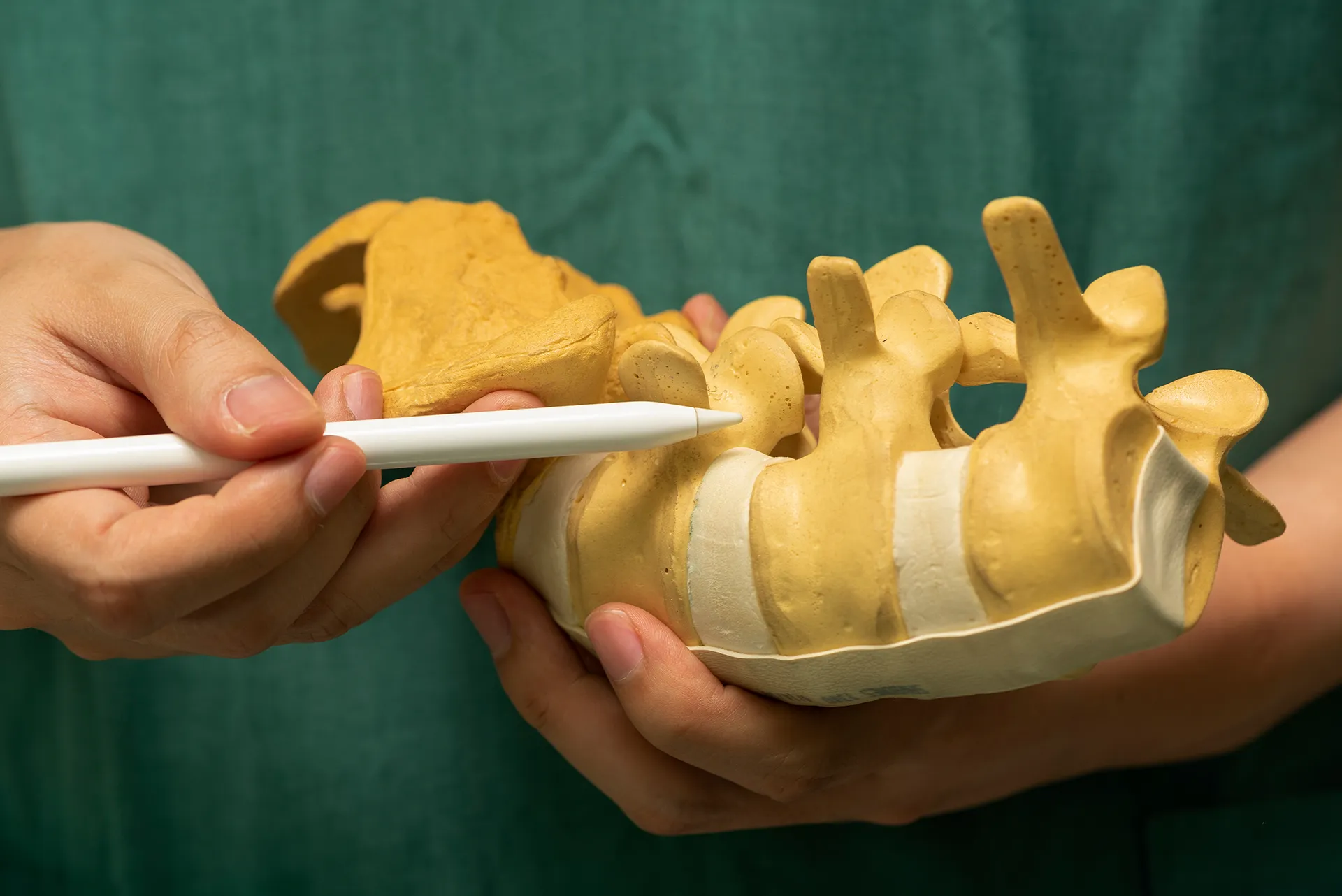Spinal Fusion
Spinal fusion is a type of surgery that permanently links two or more spinal vertebrae using a real bone or bone-like material.
This procedure is necessary when the spinal vertebrae disconnect, causing severe pain and discomfort. Spinal fusion enhances one’s quality of life by reducing pain, improving stability, and correcting deformities.
If nonsurgical treatments haven’t proven successful in reducing pain and discomfort in the spine, it may be time to consider a spinal fusion.
What Conditions Can Spinal Fusion Treat?
Spinal fusion treats various conditions, including:
- Adult Deformity
- Ankylosing Spondylitis
- Back Pain
- Cervical Myelopathy
- Cervical Radiculopathy
- Chordoma
- Degenerative Disc Disease
- Diffuse Idiopathic Skeletal Hypertrophy (DISH)
- Failed Back Surgery Syndrome
- Flat-back Syndrome
- Herniated Disc
- Lumbar Stenosis
- Myelopathy
- Neck Pain
- Osteoporosis of the Spine
- Radiculopathy
- Rheumatoid Arthritis
- Sacroiliac (SI) Joint Pain
- Scheuermann’s Kyphosis
- Schwannoma
- Sciatica
- Scoliosis
- Spinal Cord Injury
- Spinal Fractures
- Spinal Infection
- Spinal Kyphosis
- Spinal Stenosis
- Spinal Tumor
- Spondylolysis
- Spondylolisthesis
- Thoracic Stenosis

Preparing for a Spinal Fusion
Before undergoing a spinal fusion, you’ll need to get a few things in order.
First, meet with your doctor to review your medical history, including current medications. Your doctor may ask you to stop taking certain medications leading up to the procedure.
Next, keep in mind that spinal fusions are performed using a general anesthetic, which requires you not to eat for about eight hours before your procedure. You often can’t drink either, except for minimal amounts of water. Talk to your doctor if you have any questions about surgery preparation.
What to Expect During Spinal Fusion Recovery
Most patients stay in the hospital for two to four days after surgery. You should expect to experience pain and discomfort for several weeks following your procedure. Your doctor will prescribe medication to help relieve this pain. The total recovery time after a spinal fusion is about six months, but this can differ between patients.
Expect to have a limited range of motion and flexibility during the recovery period. Physical therapy can help improve these functions. You can also wear a back brace to help with spine alignment as the vertebrae settle into place and heal.








